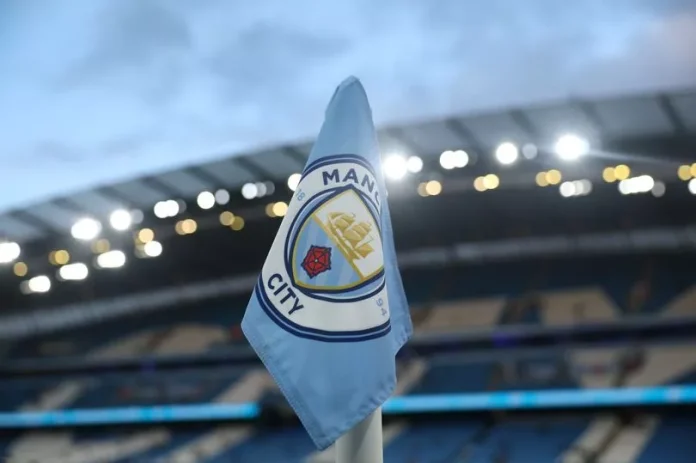The Premier League’s case against Manchester City for alleged breaches of financial regulations has reached a critical stage, with a three-member independent panel now reviewing evidence before delivering a verdict. The case, centered on 115 charges of financial misconduct spanning a nine-year period, could have far-reaching consequences for both the club and English football.
The Allegations: Financial Fair Play Under the Spotlight
Manchester City, owned by Sheikh Mansour since 2008, are accused of breaching Financial Fair Play (FFP) rules between 2009 and 2018. The allegations include misrepresenting financial information, circumventing FFP regulations, and failing to cooperate with the Premier League’s investigation.
These accusations have not only sparked controversy but also cast doubt over City’s dominance during the period in question. With eight Premier League titles, three FA Cups, six League Cups, and the Champions League among their accolades, the legitimacy of their success is being challenged.
If found guilty, the potential sanctions include significant fines, points deductions, and even relegation from the Premier League—a prospect that would send shockwaves throughout the footballing world.
The Hearing: A Comprehensive Examination
The hearing, which began on September 16, concluded last Friday at London’s International Dispute Resolution Centre. Both the Premier League and City presented extensive evidence during the proceedings. Lawyers for the Premier League detailed their claims of financial misrepresentation, while City’s legal team vigorously defended the club’s compliance with regulations.
Reports indicate that the panel, composed of three independent legal experts, is now deliberating over the voluminous evidence. A verdict is expected before the end of January 2025. However, any ruling is likely to face appeals, potentially extending the case into the next season.
Revealed: Man City’s hearing with Premier League over 115 alleged breaches has CONCLUDED https://t.co/8nAm3YimRq via @MailSport
— Mike Keegan (@MikeKeegan_DM) December 9, 2024
Manchester City’s Response and Guardiola’s Comments
Manchester City have repeatedly denied all allegations, maintaining that their financial practices have been in full compliance with FFP rules. The club has expressed confidence that the panel will rule in their favor.
Manager Pep Guardiola has also spoken publicly about the case, emphasizing the importance of a fair process and the club’s willingness to accept the outcome. In September, Guardiola commented:
“What’s going to happen, the independent panel, and we’re going to accept the sentence. Everybody is innocent until guilt is proven.”
Guardiola has consistently supported the club’s stance, steering clear of detailed legal discussions but expressing a desire for the matter to be resolved quickly to clear any doubts about Manchester City’s achievements.
Potential Consequences for Manchester City
The outcome of this case carries immense stakes for Manchester City. If found guilty, the club could face severe repercussions:
- Financial Penalties: Substantial fines could be imposed, affecting the club’s resources and future spending power.
- Points Deduction: A deduction in league points would not only hinder their current season but could also disrupt their push for domestic and European titles.
- Relegation: The most extreme penalty, relegation, would significantly impact Manchester City’s stature, revenues, and player retention.
On the other hand, a clean verdict would vindicate City, allowing them to continue their trajectory as one of the most successful clubs in modern football and silencing critics who have long questioned the fairness of their rise.
Impact on Manchester City’s Legacy
Under Sheikh Mansour’s ownership, Manchester City have transformed into a footballing juggernaut. Their trophy-laden era includes eight Premier League titles, multiple domestic cups, and a historic treble in 2023. However, these accomplishments are now viewed through the lens of these financial allegations.
If exonerated, City’s legacy could be cemented as a model of success driven by smart investments and footballing excellence. Conversely, a guilty verdict could overshadow their achievements, creating a narrative of success built on financial misconduct.
Broader Implications for the Premier League
The Premier League’s pursuit of this case highlights its commitment to enforcing financial regulations and ensuring fairness across all clubs. However, it also underscores the challenges of policing financial practices in an era of multi-billion-dollar investments in football.
The league recently approved changes to associated party transaction rules, tightening regulations to prevent clubs from inflating revenues through related entities. These reforms demonstrate a proactive approach but also reflect the complexity of regulating financial transparency in a highly competitive industry.
This case is not just about Manchester City; it has broader implications for the league’s credibility and the enforcement of FFP rules. A precedent-setting verdict could shape future governance and provide clarity on what constitutes acceptable financial behavior for top-tier clubs.
City’s Rivals and the Competitive Landscape
City’s rivals, including Liverpool, Manchester United, and Arsenal, have closely monitored the case. These clubs have raised concerns about the competitive advantage gained through alleged financial misconduct. A guilty verdict could validate their frustrations, while an acquittal would solidify City’s standing as a legitimate force in English football.
Additionally, the outcome could influence the transfer market, sponsorship deals, and fan perception. For City, the stakes extend beyond the legal realm to the very fabric of their identity and reputation.
The Road Ahead
As the independent panel deliberates, football fans, players, and stakeholders await a decision that could redefine the future of Manchester City and reshape the dynamics of English football. Whether through exoneration or sanctions, the verdict will mark a turning point in the sport’s ongoing battle for financial fairness and transparency.
READ NEXT:


